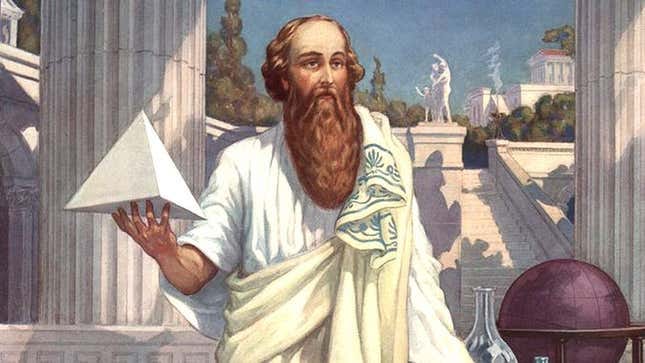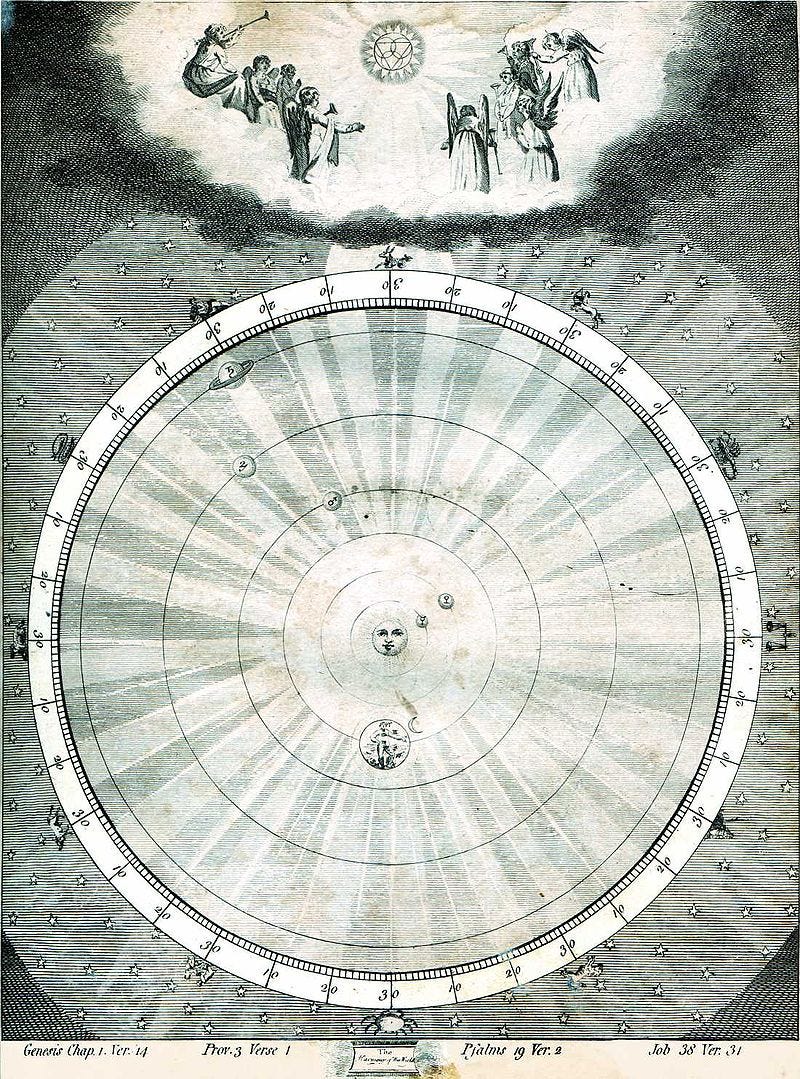“...amongst such riches, that earth, the greatest of mothers, yields, you are not happy unless you tear, with cruel teeth, at pitiful wounds ... and you cannot satisfy your voracious appetite, and your restless hunger, unless you destroy other life!” - Pythagoras, as quoted by Ovid
“Pythagoras had come to be regarded, in some circles, as the master philosopher, from whom all that was true in the Greek philosophical tradition derived.” - Stanford Encyclopedia of Philosophy
Centuries before Socrates, Plato, and Aristotle, Pythagoras shook up the intellectual world. Humanity was never the same.
His wild ideas about numbers, geometry, music, immortality, animals, and women’s equality remain with us, deep in our science and philosophy.
Just as with many occult, esoteric topics, it’s posited that Pythagoras was originally inspired by the philosophies of the ancient Egyptians, which adds another layer of mystery to Pythagoreanism.
Pythagoras was much, much more than a math nerd. The Pythagorean Theorem, important as it is, is just one practical concept from his day that has survived.
The Pythagoreans believed in the power of numbers, harmony, treating animals with respect, acknowledging women as philosophers, vegetarianism, reincarnation, the list goes on.
Pythagoras was born about 2,600 years ago and was one of the most important pre-Socratic philosophers.
Some called him “superhuman.”
“Aristotle emphasized his superhuman nature ... Pythagoras had a golden thigh (a sign of divinity) ... Abaris was a shaman from Mongolia ... who recognized Pythagoras as an incarnation of Apollo.” - Stanford Encyclopedia of Philosophy
Unlocking the secrets of the universe
“They wanted to figure out how things worked ... and everywhere they looked, they found numbers.” - David Foster Wallace, on Pythagoreanism
Pythagoras sought answers for the hidden and true nature and meaning of the whole universe and through this, he became obsessed with numbers. The magic hidden in them. Numbers everywhere. Numbers that correspond to other numbers, even vs. odd numbers, the significance of one. The significance of three. The significance of ten.
Three was considered the perfect number, the divine proportion. Of course, you’ll also recognize the “divinity” of the number three in Christianity (the trinity, for example), and other religions.
Numbers were the actual secret of the universe.
If you want to go all the way down the numerology rabbit hole, note that “3, 6, 9” has a legacy in the 369 manifestation practice, and Nikola Tesla famously (and cryptically) said:
“If you only knew the magnificence of the 3, 6 and 9, then you would have the key to the universe.”
Everything is harmony
Numbers are only the beginning, though. Through numbers you have the beautiful phenomenon of harmonies. Harmonies in actual music, yes. But harmonies across everything.
The Harmony of Spheres is sometimes attributed to Pythagoras. It’s the bizarre and fascinating idea the celestial spheres (planets) display a harmony amongst themselves more or less identical to the harmony found in music via different frequencies of vibration.
Kepler later “sought to explain the solar system in terms of divine harmony.”
In life, Pythagoreans used music to purify to calm or arouse their souls and mind.
Transcendence
In some ways Pythagoreanism was an ancient “secret society” with some knowledge possibly being kept secret. However, there is a true way of life taught in Pythagoreanism that has come down from the ages.
Many accounts show that Pythagoras preached vegetarianism, rejecting the idea that we must kill for food. He believed “all animate beings are of the same family”.
“Oh, how wrong it is for flesh to be made from flesh; for a greedy body to fatten, by swallowing another body; for one creature to live by the death of another creature! ... There are crops; there are apples weighing down the branches; and ripening grapes on the vines; there are flavoursome herbs ... The earth, prodigal of its wealth, supplies you with gentle sustenance, and offers you food without killing or shedding blood.”
- Ovid, quoting Pythagoras
He is believed to also have rejected the idea of killing an animal for sacrifice, an extremely radical idea for that period.
This compassion for animals is often believed to be related to his belief in metempsychosis, or the transmigration of souls. Reincarnation.
Curiously, Buddha lived around the same time. And Pythagoreanism also teaches the idea of progressing through lives.
In a recovered fragment, there is an anecdote of Pythagoras that went:
“once when he [Pythagoras] was present at the beating of a puppy, he pitied it and said ‘stop, don’t keep hitting him, since it is the soul of a man who is dear to me, which I recognized, when I heard it yelping’”
Women
Women were significant in Pythagoreanism. Pythagoras welcomed women into his teachings, and some of the first women philosophers recorded were Pythagorean philosophers. Pythagoras’ wife was a respected philosopher and is believed perhaps to have led the school after his death.
The transmigration of souls
Pythagoras believed that the soul can survive the body. And that we can be reborn into other physical bodies.
This may have come from the Egyptians, who “believed that the soul was reborn as every sort of animal before returning to human form after 3,000 years.” (Stanford Phil. Encyclopedia).
Nevertheless, it was a major part of his philosophy. We don’t really know, but it’s speculated that evidence suggests he believed that the cycle of reincarnation could be escaped, or that between reincarnations is a heaven-like existence.
A final thought on Pythagorean living
In our own lives, what can we take away from Pythagoras’ teachings? Perhaps we need more music in our lives to experience our emotions. Perhaps we need to see the world in a new way—a way where we can see and feel the beauty present in the connections and harmonies between ourselves and others, ourselves and nature, ourselves and the cosmos. Every moment of the day.
And feel divine.
- Joe
Links to more
Pythagoras - The Stanford Encyclopedia of Philosophy
Greek Philosopher Pythagoras and His Famous Theorem
Books
Nonfiction
Divine Harmony: The Life and Teachings of Pythagoras
Fiction
Pythagoras' Revenge: A Mathematical Mystery






